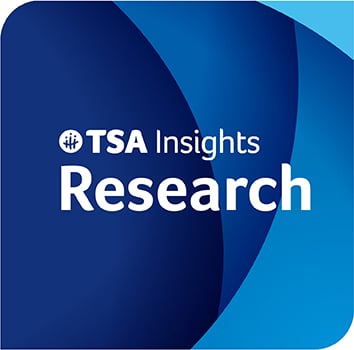How vigabatrin affects brain imaging in babies with TSC
About this study
This study explored the relationship between vigabatrin, a medication used to treat seizures in infants with TSC, and certain brain changes observed in magnetic resonance imaging (MRI) scans. Researchers aimed to determine how often these MRI changes occur and whether they lead to noticeable symptoms in infants.
How the study was conducted
The research included 103 infants diagnosed with TSC, 80 of whom were treated with vigabatrin before the age of two, and 23 who were not. 29 infants diagnosed with epilepsy but not TSC, who did not receive vigabatrin, served as a control group. MRI scans were performed before, during, and after vigabatrin treatment to identify specific brain changes. Infants were also monitored for any related symptoms.
Outcomes of the study
The study found that 35.5% of the infants with TSC treated with vigabatrin showed specific brain changes on their MRI scans. Similar changes were observed in 13.5% of infants who had not received vigabatrin. In all 13 infants treated with vigabatrin, who showed possible vigabatrin-related brain abnormalities on MRI and had follow-up scans after stopping the medication, the brain changes resolved.
Conclusions of the study
The research indicates that while certain brain changes can occur in infants with TSC who are treated with vigabatrin, similar changes can also occur in infants who have not received the medication. The exact cause of these MRI changes remains unclear, with potential factors including abnormal brain development, underlying conditions, recurrent seizures, or other seizure medications. Notably, these MRI changes did not appear to be linked to clinical symptoms.
Implications of the study
This study suggests that the known benefits of vigabatrin in controlling seizures outweigh the potential risk of these MRI-detected brain changes, especially since they do not seem to cause symptoms and are reversible after stopping the medication.
Stevering C, Lequin M, Szczepaniak K, Sadowski K, Ishrat S, De Luca A, Leemans A, Otte W, Kwiatkowski DJ, Curatolo P, Weschke B, Riney K, Feucht M, Krsek P, Nabbout R, Jansen A, Wojdan K, Sijko K, Glowacka-Walas J, Borkowska J, Domanska-Pakiela D, Moavero R, Hertzberg C, Hulshof H, Scholl T, Petrák B, Maminak M, Aronica E, De Ridder J, Lagae L, Jozwiak S, Kotulska K, Braun K, Jansen F. Vigabatrin-associated brain magnetic resonance imaging abnormalities and clinical symptoms in infants with tuberous sclerosis complex. Epilepsia. 2025 Feb;66(2):356-368. doi: 10.1111/epi.18190. Epub 2024 Dec 6. PMID: 39641935; PMCID: PMC11827727.
Full paper available at: https://doi.org/10.1111/epi.18190
DISCLAIMER
This information is intended to provide some insights into recent TSC-related research. It is not intended to, and it should not, constitute medical or other advice. Readers are warned not to take any action without first seeking medical advice.

